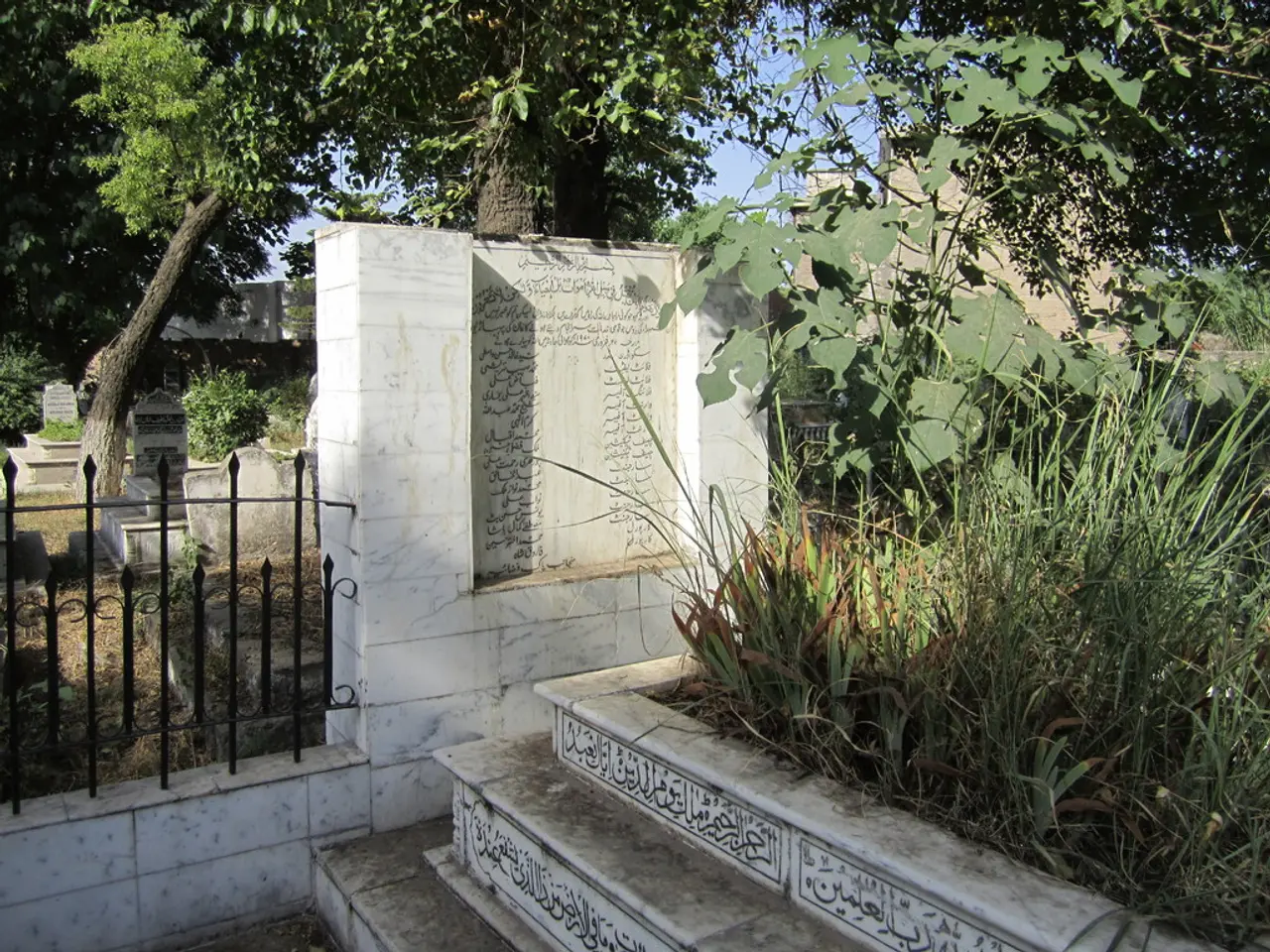"America's unique bunker-busting weapon stirs Israel's trouble!"
Israel's Military Predicament: The Fordo Dilemma
Israel grapples with a strategic quandary concerning Iran's Fordow uranium enrichment facility. This complex conundrum revolves around several intertwined factors that make the facility a thorn in Israel's side.
1. Head-scratching fortress: Fordow, hidden beneath a mountain range, boasts unprecedented fortification. Its infrastructure and centrifuges are protected by piles of rock and reinforced structures, making it remarkably resilient against conventional airstrikes, even most bunker busters[1][3][4]. The mountain's natural and engineered fortifications serve as a deterrent against military strikes, rendering ordinary munitions ineffective[3][4].
2. Arsenal limitations: Israel lacks a critical weapon in its arsenal - the US-made GBU-57, a 14-ton precision bomb capable of penetrating up to 60 meters into the ground[1]. This beastly bomb is what's needed to obliterate Fordow, but Israel doesn't operate the heavy strategic bombers required to deliver it effectively[1][4].
3. American Ambivalence: While the US has both the GBU-57 and the means to deploy it, direct US involvement in a strike on Fordow comes with significant geopolitical risks and could provoke Iranian retaliation[3][4]. Consequently, US officials have shown reluctance to transfer or deploy these munitions for Israel[3][4]. The international community might view US participation or tacit support as an escalation, risking broader conflict, a scenario both Israel and the US work hard to dodge[3][4].
4. Alternative options: Israel could seize temporary air superiority to disrupt activities at Fordow, but this approach would not physically destroy the facility or eliminate its capabilities[4]. Another idea pitched by some experts is to repetitively strike the same location, hoping this might eventually achieve a similar effect as a single massive bunker buster, although this approach could increase the risk of collateral damage or escalation[4].
5. Stakes sky-high: The stakes are high for both regional and global security. Failure to cripple Fordow might allow Iran to continue and possibly accelerate its nuclear enrichment activities, raising the risk of regional arms proliferation and heightened tensions[4][5]. Any direct or indirect attack on Fordow, especially with US assistance, could trigger Iranian retaliation, destabilizing the Middle East and potentially dragging in other international actors[3][4].
In essence, Israel's military predicament revolves around Fordow's strong defenses, the technical constraints of its own arsenal, the political and strategic risks of US involvement, and the high stakes associated with Iran's nuclear ambitions. Given this complex scenario, it's easy to see why Israel yearns for a weapon like the GBU-57, but acquiring or employing such a weapon remains fraught with challenges[1][3][4].
Enrichment Data:- Fordow's resilience: Fordow's resilience stems from its deep underground construction and its infrastructure's fortifications, making it highly resistant to conventional airstrikes and even most bunker busters[1][3][4].- Israel's lack of heavy bombers: Israel lacks the heavy strategic bombers needed to effectively deploy the GBU-57, even if it acquired the bomb[1][4].- US reluctance: The US has expressed reluctance to transfer or deploy the GBU-57 for use by Israel due to the geopolitical risks and potential for Iranian retaliation against American interests[3][4].- Alternative tactics: Alternative tactics, such as repeated bombardment, could potentially achieve similar results, but these approaches come with their own set of challenges[4].- Global repercussions: A direct or indirect attack on Fordow, especially with US assistance, could have serious global repercussions, including regional arms proliferation and heightened tensions[4][5].
Sources:[1] “Israel's lack of capability to destroy Iran's nuclear plant.” The Times of Israel, 2020[3] “The military and political obstacles facing Israel against Iran.” Brookings Institution, 2020[4] “Israel's air strike on Iran's nuclear program: Options and implications.” Congressional Research Service, 2020[5] “The risks of a military conflict between Israel and Iran.” Carnegie Endowment for International Peace, 2020
1. Political dilemmas: The US withholding the GBU-57 and Israel's lack of heavy strategic bombers point to a political impasse, as the war-and-conflicts landscape hinges on their partnership and joint efforts against Iranian war-and-conflicts activities, particularly Fordow's war-and-conflicts capabilities.
2. International ramifications: The global news community weighs the consequences of a potential attack on Fordow, with concerns about general-news events like regional arms proliferation and escalating tensions amidst ambiguous involvement from powerful players such as the US, and the ripple effects this could have on the broader international community.








